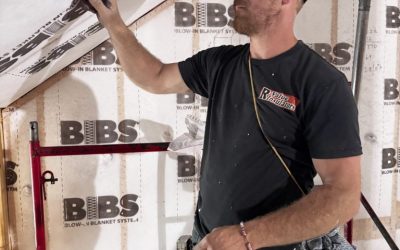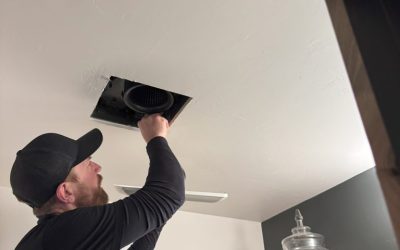When you purchased your last vehicle, chances are you considered more than just the price tag. You also thought about the cost of maintaining and operating the new ride — things like gas mileage and routine maintenance.
Have you ever considered the cost of your home in the same way? Homes cost more than just their monthly mortgage payment. You’re also shelling out for upkeep, insurance, repairs, and energy costs. While some of those costs are unavoidable (that 18-year-old water heater probably won’t last forever!), other costs can be managed or reduced. One of these is the cost of heating and cooling.
On today’s blog, RVI explores how the cost of heating and cooling ties into your monthly or yearly home operating costs, and the ways you can help reduce those expenses.
A “Leaky” Home Can Be Costly
Homes, like vehicles, come in different shapes, sizes, and ages. And chances are, just like a car, the age of your home plays a large role in how efficient it is — or isn’t.
The older the home (especially those built pre-1960), the more “leaky” it tends to be, meaning that it quite literally leaks heated interior air and allows cold exterior air to enter through windows, cracks, and other poorly insulated areas.
Homes built in the early 20th century or before had very little, if any, insulation in the walls. Older homes often have less insulation in attics, drafty single-pane windows, or outdated and inefficient heating systems.
If you live in an older home that has had few energy upgrades, chances are that not only are you are spending a pretty penny on energy bills in the winter, you’re also dealing with drafts, ice dams, and chilly, damp indoor air. These issues can add up and increase the cost of owning the home.
Newer homes (built in the mid-20th century onwards) are considerably more energy-efficient, just by virtue o modern building codes and innovations in home insulation. The more well-insulated a home, the less it costs to heat and cool. However, even newer homes can generally be made more energy-efficient and less costly to heat with some upgrades.
How Can You Reduce the Cost of Heating a Home?
Whether or not you face a steep heating bill in the winter, there are steps you can take to reduce the cost of home operation. Some of these options cost more upfront but provide a great return on investment. Others are relatively inexpensive but still add up to decent savings over time.
Some simple steps that the average homeowner can DIY would be to replace weather-stripping or caulking on windows and doors and fill any holes around exterior pipes, wires, or vents. This will help seal the home and prevent the leakage of warm air.
Newer “smart” thermostats are also a great and relatively inexpensive investment that can reduce overall energy usage. These devices learn your habits and preferences and adjust heating schedules to provide the most efficient interior temperature settings.
If you have an older home that has gone many years without modern energy upgrades, you might want to look at some more extensive energy upgrades. Although they involve a greater upfront cost, they can eventually pay for themselves many times over by reducing the cost of operating your home.
An audit of your home’s energy use can determine what upgrades will create the biggest ROI. Often, upgrades will include adding additional insulation to attics, exterior walls, or rim joists; and properly sealing any cracks or openings that allow air leakage.
Although these options cost more, it’s important to keep in mind they will reduce your annual energy costs and, in turn, reduce the cost of operating your home. According to EPA estimates, the average homeowner in our northern climate zone can save up to 19% annually on heating and cooling costs just by having their home properly air sealed and insulated. And, as a bonus, a well-insulated and efficient house is more comfortable, quieter, and more environmentally friendly.
There is one other important consideration to note for those building a new home. Always request that your builder work with an insulation specialist to add adequate insulation and ventilation in your new build. Any upfront costs to ensure this step isn’t missed are well worth it, as you will see decreased operating costs and increased home comfort from day one.
Call Rhinelander’s Home Insulation Experts Now
If your home heating bills are hard to stomach or you spend your winter battling drafts and ice dams, get in touch with RVI today. Our high-performance building experts are happy to visit your home to perform a comprehensive energy use audit. Our team will provide you with information about how you can make your home less costly to heat, more comfortable to live in, and more environmentally friendly.
Reduce your home’s cost of operation with RVI’s whole-home building science approach. Call us at 715-420-0177 today!



